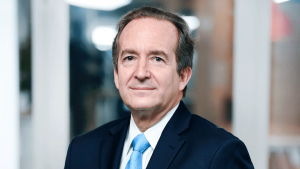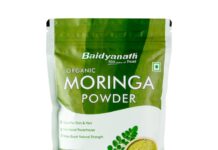Tetra Pak has been recognized as one of the world’s 50 Sustainability and Climate Leaders. The leading food processing and packaging solutions company has been acknowledged for its commitment to pioneer a sustainable future, with a documentary showcasing its fascinating journey.
The video features interviews with Tetra Pak’s Global Leadership Team members, highlighting how the role of the food sector in tackling climate change is becoming even more imperative. They explain why accelerating de-carbonization and collaborations is critical to lead the sustainability transformation of the food packaging industry – addressing complex and multi-faceted challenges such as global warming, circularity, and biodiversity.
Food is a critical but often overlooked element of the climate issue. The global food system accounts for 26% of global greenhouse gas (GHG) emissions, while 8% of total emissions are caused by food waste. In other words, if food waste were a country, it would be the world’s third-largest producer of emissions.
Furthermore, the COVID-19 pandemic has exposed the weaknesses of the world’s food system, which will only be further amplified by the expected growth of the worldwide population to 9.1 billion by 2050.
Tetra Pak’s positive approach towards sustainability
High-performance food packaging plays a critical role in feeding the world, but it must do so sustainably so that food availability does not come at the cost of the planet. This lies behind Tetra Pak’s purpose: To commit to making food safe and available everywhere, in a way that protects what’s good – protecting food, protecting people as well as protecting the planet. To minimize climate impact while helping to ensure food security for the future, the company takes a full life cycle view of its solutions. Always working collaboratively. This means:
- Maximizing the use of renewable materials and sourcing them responsibly in a way that protects biodiversity
- Minimizing the carbon impact of its operations as well as the one created by its value chain, for instance, by accelerating the switch to renewable energy and by stepping up investment to develop low carbon processing and packaging solutions
- Enabling greater access to safe food while reducing food waste: the aseptic filling technology that Tetra Pak introduced to the food industry in the early 50s allows for ambient distribution and storage without requiring energy-intensive refrigeration
- Driving an active agenda to develop sustainable recycling value chains

Adolfo Orive, President & CEO at Tetra Pak, said, “Our company was founded on the philosophy that a package should save more than it costs. Sustainability has always been at the core of everything we do; as such, it is also a fundamental building block of our 2030 strategy, so we are proud to receive industry recognition for our work to date.”
“We have already taken great strides on our journey to pioneer a sustainable future. However, with the current climate crisis and the potential food security challenges, we believe that the food packaging industry needs a major step-change in its evolution.”
“Our ambition is to deliver the world’s most sustainable food package. This means creating cartons that are fully made from renewable or recycled materials, are fully recyclable and carbon neutral. We see this as the only way to protect what’s good – food, people, and the planet.”
IndiFoodBev — authentic, impactful and influential
An English-language food and beverage processing and packaging industry B2B platform in print and web, IndiFoodBev is in its third year of publication. It is said that the Indian food and beverage industries represent approximately US$ 900 billion in revenues which implies more than 20% of the country’s GDP. Eliminating the wastage on the farmside can help to deliver more protein to a higher number of the population apart from generating sizable exports. The savings in soil, seeds, water, fertilizer, energy and ultimately food and nutrition could be the most immense contribution that country is poised to make to the moderation of climate change.
To improve your marketing and grow sales to the food and beverage processing and packaging industry, talk to us. Our research and consulting company IppStar [www.ippstar.org] can assess your potential and addressable markets in light of the competition. We can discuss marketing, communication, and sales strategies for market entry and growth.
Suppliers and service providers with a strategy and budget for targeted marketing can discuss using our hybrid print, web, video, and social media channels to create brand recognition linked to market relevance. Our technical writers are ready to meet you and your customers for content.
The second largest producer of fruit and vegetables in the world is continuously expanding processing capacities and delivery systems with appropriate innovative technologies. We cover product and consumer trends, nutrition, processing, research, equipment and packaging from farm to thali. Get our 2025 media kit and recalibrate your role in this dynamic market. Enhance your visibility and relevance to existing markets and turn potential customers into conversations. Ask for a sample copy of our bi-monthly in print or our weekly IndiFoodBev eZine each Wednesday.
For editorial info@ippgroup.in — for advertisement ads1@ippgroup.in and for subscriptions subscription@ippgroup.in
Naresh Khanna – 10 February 2025
Subscribe Now











